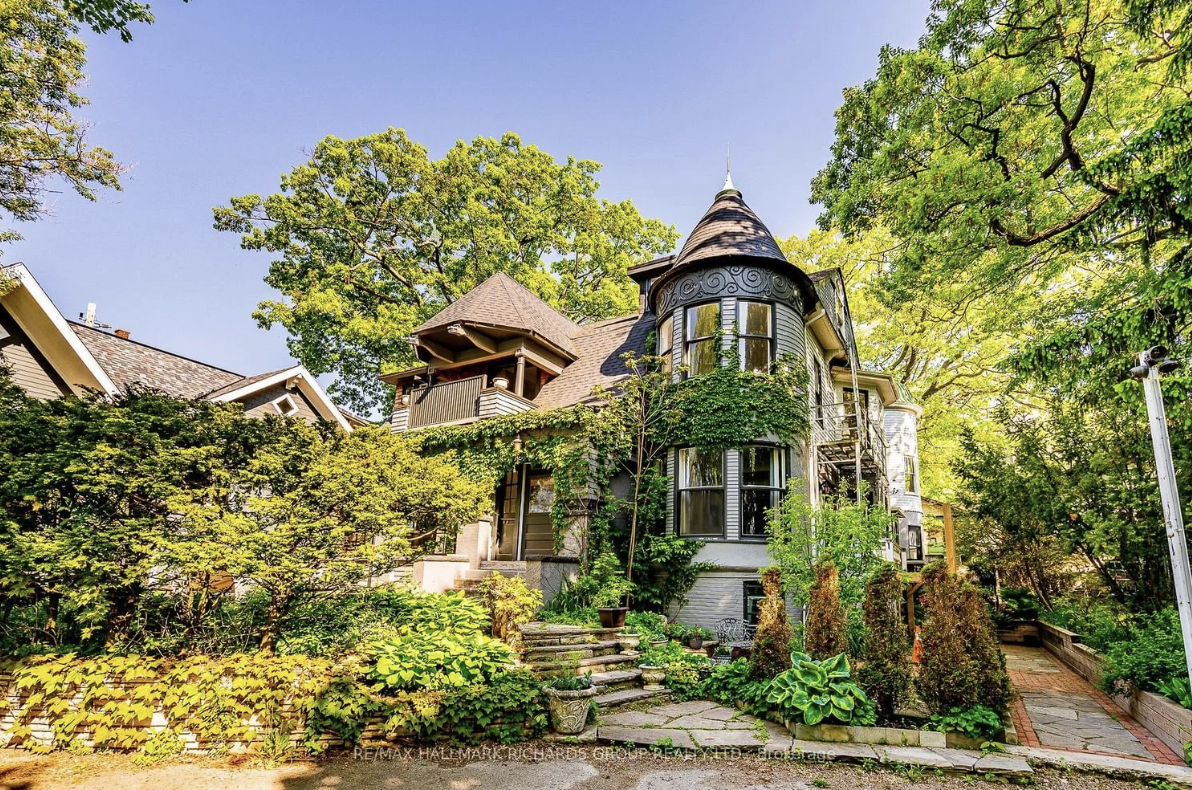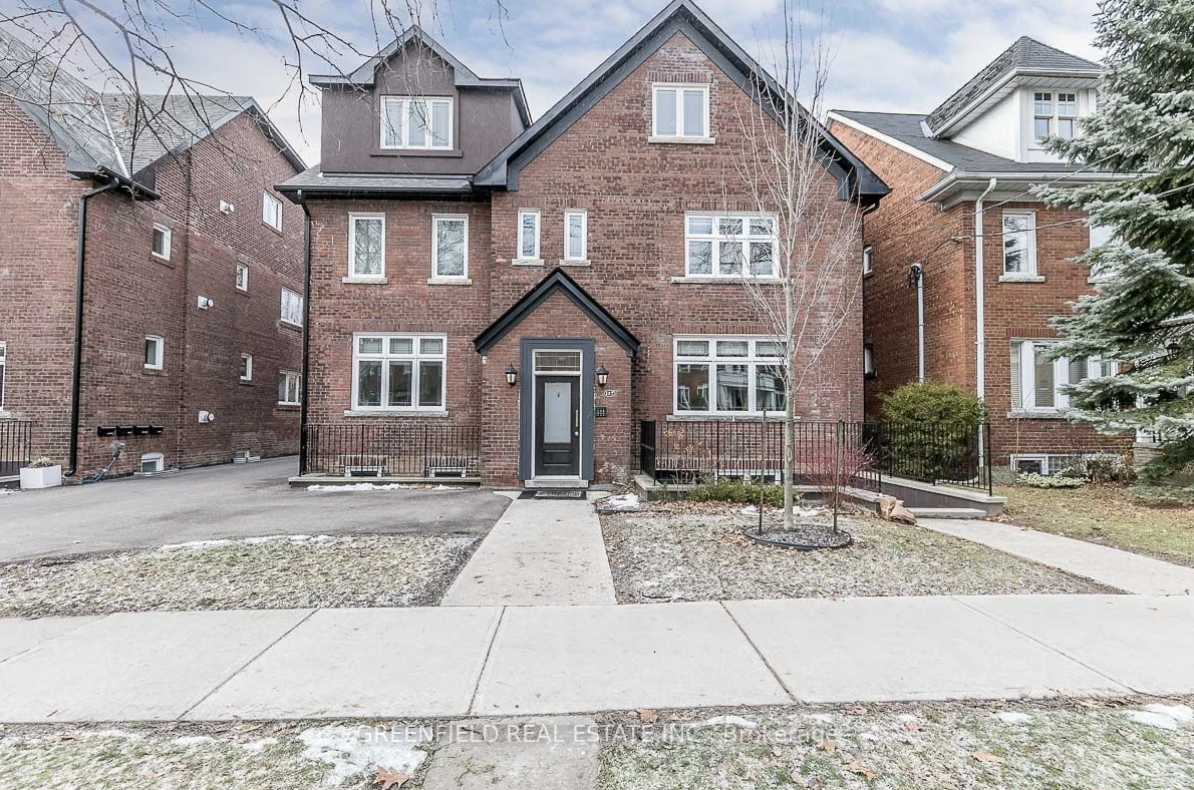So You Want to Buy a Multiplex or Apartment Building? Here's What You Need to Know
Before plunging into a multi-unit investment, here are a few things you should keep in mind
 Written By Robert Van Rhijn
Written By Robert Van Rhijn 1. Location, Location, Location!
You’ve heard this one a million times, but it’s the golden rule of real estate for a reason. Whether you’re eyeing a cozy triplex in Toronto’s trendy Queen West or a sprawling apartment complex in the Oakville suburbs, the location can make or break your investment. Check out the neighbourhood vibe, accessibility, and amenities. Remember, your future tenants would love to be close to public transit, schools, and cute coffee shops.
One quadplex that definitely checks the location box is 509 Palmerston Blvd. Listed for $3,299,000 this detached-house / multiplex boasts over 4,000 square feet of space, multiple patios, four parking spots and is close to literally everything.
2. Know Your Numbers
Think of buying a multiplex like hosting a big party — you need to know how many guests (aka tenants) it can handle, how much it’ll cost, and what you’ll get out of it. Crunch those numbers! Calculate the potential rental income, expenses (maintenance, taxes, insurance), and factor in a buffer for unexpected costs. It’s all about balancing the books to make sure you’re not just breaking even; but turning a profit.
One thing you can look at is the capitalization rate (cap rate). This handy metric helps you understand the potential return on your investment. It’s calculated by dividing the net operating income (NOI) by the property’s purchase price. For example, if your property generates $100,000 in annual income and costs $1,000,000 — your cap rate is 10%. A higher cap rate often indicates a higher return. But this can also mean more risk. Compare cap rates in the area to get a sense of whether you’re getting a good deal. But generally, experts say that a good cap rate hovers around 4%.

3. Check the Condition
Before you sign on the dotted line, channel your inner Sherlock Holmes. Inspect every nook and cranny of the building. A fresh coat of paint can hide a multitude of sins. Look for signs of wear-and-tear, structural issues, and anything that screams “money pit”. Don’t be shy about bringing in a professional inspector. It’s worth the peace of mind.
For example, 3025 Queen St E looks stunning from the outside because it is. It’s a historic Toronto landmark literally called Chateau de Quatre Vents (Castle of the Four Winds). But the interior condition is less than ideal. It’s only halfway through a renovation, and is now being sold “as is”. Not to mention the place has been listed several times since 2021, and keeps dropping the asking price. In short, your spidey senses should be tingling.
On the other hand, this nine-unit multiplex in The Beaches is basically turn-key after a two-year restoration project. It is, however, listed for over $8 million.
4. Understand the Market
Real estate isn’t just about bricks and mortar; it’s about trends and timing. Dive into the local market to understand rental demand and vacancy rates. Are people flocking to the area, or is it seeing an exodus? Keeping an ear to the ground can help you make informed decisions and avoid potential pitfalls.
5. Legal Eagle Eyes
Owning a multiplex means wearing multiple hats — with the main one being the landlord hat. Get familiar with Toronto and Ontario’s landlord-tenant laws. Know your rights and responsibilities, making sure your lease agreements are airtight. It’s like playing Monopoly, but with real consequences.
6. Financing Fun
Securing financing for a multiplex can be a bit different from getting a mortgage for a single-family home. Although, if the property has four-units or less, you can still qualify for a traditional home mortgage.
However, when purchasing a multiplex with five or more units, lenders classify this as a commercial property, requiring you to qualify for a commercial mortgage. This type of loan has additional criteria, such as evaluating the building's profit potential and assessing your experience as a landlord.
But you should still shop around for the best rates and terms, as well as consider working with a mortgage broker who specializes in multi-unit properties. They can help you navigate the process and find a deal that works for you.
7. Property Management: DIY or Outsource?
Decide early on whether you want to manage the property yourself or hire a dedicated property manager or firm. Self-managing can save you money, but it also means being on-call 24/7 for tenant issues. If the thought of late-night plumbing disasters makes you shudder, it might be worth outsourcing.
When hiring a property management company or property manager, prioritize experience, reputation, and services offered. Look for a company with a solid track record and good references. Ensure they offer comprehensive services like tenant screening, rent collection, and maintenance.

8. Future-Proofing
Think long-term. Will the area continue to grow and attract tenants? Are there plans for new developments or infrastructure projects that could boost property values? In short, future-proofing your investment can help ensure it remains profitable down the line. Look for signs of upcoming neighborhood revitalization projects, new public transit routes, or planned commercial developments. These can all indicate a positive future trajectory for your investment.
For example, in Toronto transit infrastructure can have a big impact on property value. So you might want to look at a multiplex like 117 Chaplin Cres. Listed for $4,950,000, this newly renovated building offers four apartments, plenty of parking and will be steps away from the new LRT.
Additionally, consider the property's potential for upgrades and improvements—modern amenities and energy-efficient features can make your building more attractive to future tenants and increase its value over time.
9. Community Vibes
Lastly, consider the community aspect. Multiplexes and apartment buildings often create mini-communities. How will you foster a positive environment? Happy tenants are more likely to stick around, reducing turnover and keeping your investment steady.
Buying a multiplex or apartment building can be a thrilling adventure. With a bit of homework, some number-crunching, and a dash of Sherlock Holmes’ detective skills, you’ll be well on your way to becoming a real estate mogul. So, grab your floaties, and dive in – the water’s fine!
Starting your search for a new home? Click on any of these links to access active listings, sold listings or contact a Strata agent.
For any questions about this article or media inquires, please email media@strata.ca
